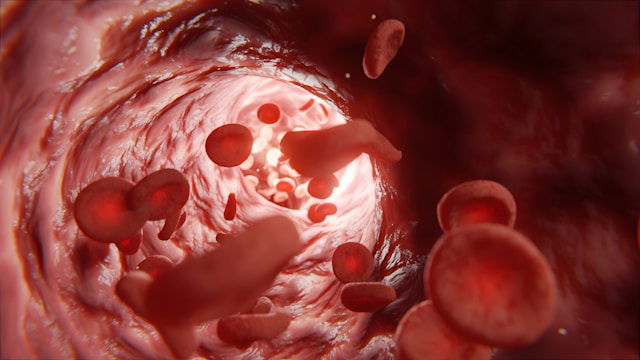
Heart disease is a major cause of death around the world. In the United States, about one out of every four deaths is caused by heart disease. One of the most dangerous forms is coronary artery disease.
This happens when plaque builds up inside the arteries. Plaque is made of fat, cholesterol, and other substances, and it can block blood from reaching the heart. If this isn’t treated, it can lead to heart attacks and strokes.
Scientists are always trying to learn more about what causes this disease and how to stop it. A new study from researchers at the University of Virginia Health may help with that. Their research looked at certain cells in blood vessels and found that these cells might be playing a surprising role in making the disease worse.
Blood vessels have walls that contain smooth muscle cells. These cells help keep the arteries strong and flexible. In a healthy body, these cells can form a protective cover over plaque. This cover helps prevent the plaque from breaking off and blocking blood flow.
But scientists have discovered that sometimes these cells act differently. Instead of protecting the blood vessels, they can actually help plaque grow and make the disease worse. Researchers have been trying to understand why this happens.
To find answers, a team led by Dr. Mete Civelek and his student Noah Perry studied smooth muscle cells taken from people who had heart transplants. They were trying to find genes that might control how these cells behave.
What they found was interesting. It seems that how these cells process nitrogen and a sugar called glycogen might be linked to the changes. Glycogen is a kind of sugar the body stores for energy. If there is a problem with how this sugar is handled, it might cause the cells to change in harmful ways.
One sugar in particular, called mannose, stood out to the scientists. They think mannose might play a part in turning the muscle cells from helpful to harmful. But they need to do more studies to understand exactly how mannose works in this process.
This discovery is important because if scientists can learn what causes smooth muscle cells to turn harmful, they might be able to stop it. This could lead to new treatments for coronary artery disease.
Right now, doctors use medicine to lower cholesterol and blood pressure to help prevent heart disease. These treatments work, but they don’t completely stop the disease. Dr. Civelek says we need to find new ways to treat heart disease. That’s why this kind of research is so important.
The research team, including Perry, Diana Albarracin, and Redouane Aherrahrou, will keep studying how these changes happen in the cells. Their hope is to discover new ways to slow down or stop heart disease, which could help many people.
While scientists work on finding better treatments, there are things we can all do to protect our hearts. Some studies show that vitamin D may help reduce inflammation, which is a problem in heart disease. Vitamin K may lower the risk of heart disease too. Eating healthy, getting regular exercise, and managing stress are also good for the heart.
This new study gives us more clues about how heart disease works and might help scientists find new and better treatments in the future.
The study was published in Circulation: Genomic and Precision Medicine.
If you care about health, please read studies about the benefits of low-dose lithium supplements, and what we know about egg intake and heart disease.
For more health information, please see recent studies about potatoes and high blood pressure, and results showing 6 best breads for people with heart disease.
Copyright © 2025 Knowridge Science Report. All rights reserved.



